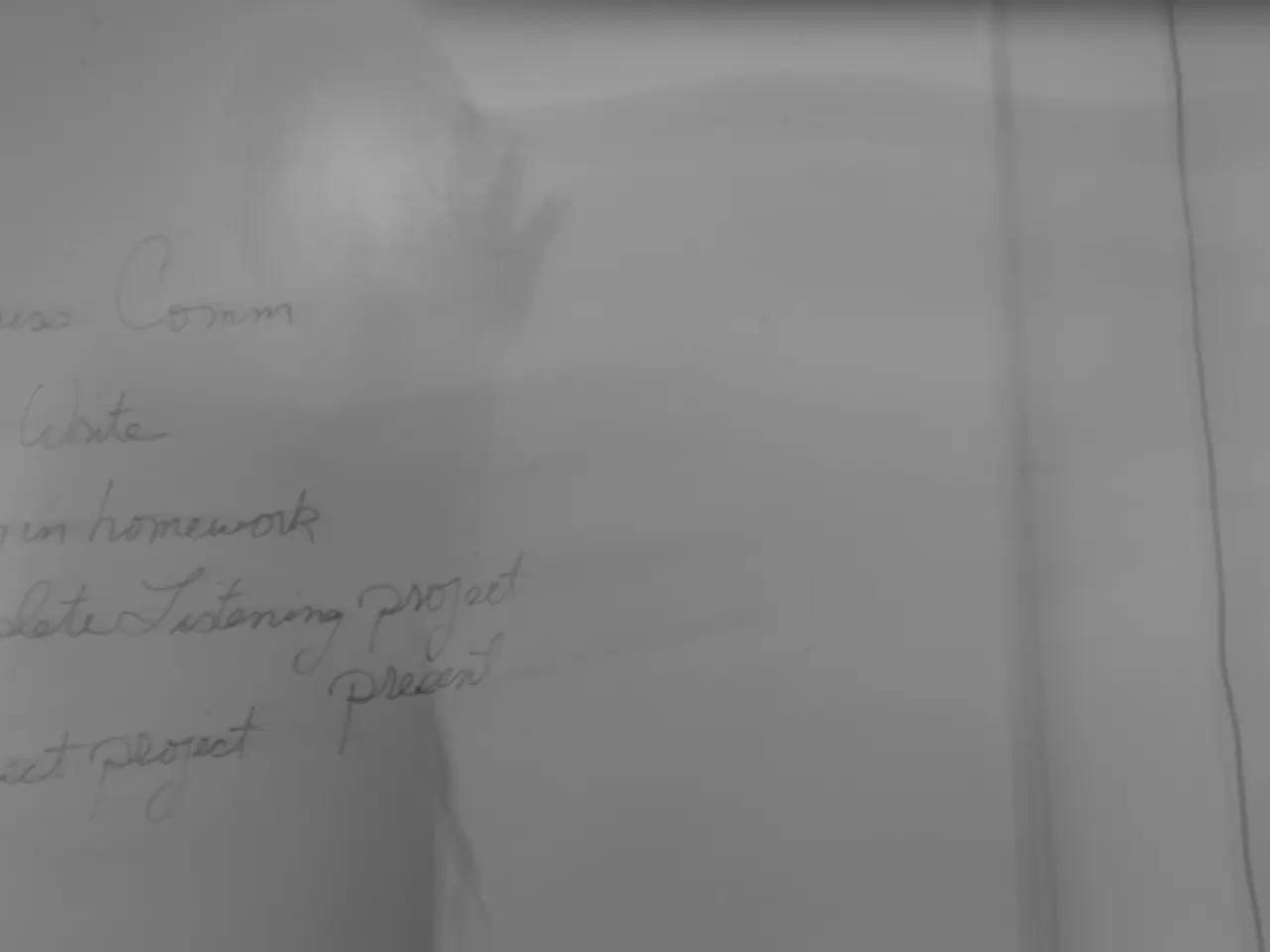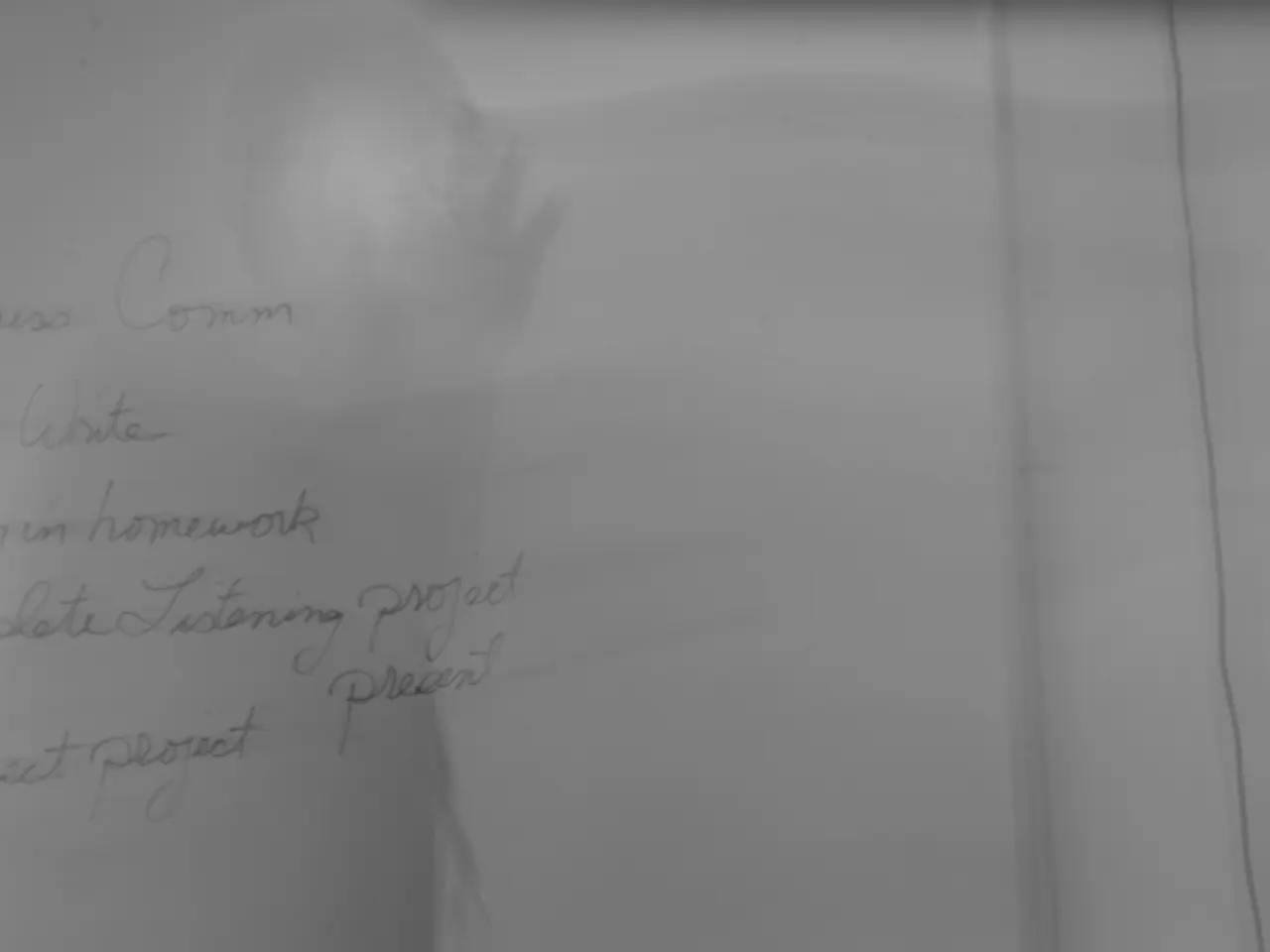Unwanted Spotlight: Trump's Tariffs and the Fed's Dilemma
U.S. Federal Reserve's Decisions Cast in Shadow by Trump's Tariffs Policies - U.S. Tariffs Cast a Shadow Over the Federal Reserve's Economic Decisions
President Donald Trump's tariffs have put the U.S. Federal Reserve (Fed) in a tricky situation. As the economy's engine, the Fed is striving to maintain a balance between keeping inflation in check and ensuring a thriving labor market. But the looming tariffs, as championed by Trump, could disrupt this delicate equilibrium.
Powell: Tariffs Fuel Inflation and Curb Growth
Fed Chair Jerome Powell has been clear about the consequences of Trump's tariff policies: they will inflate prices and hinder economic growth. "With tariffs, everyone I know is predicting a significant increase in inflation in the coming months," Powell stated, cautioning that this could directly affect consumers.
The impact of tariffs depends on their magnitude, according to Powell. While initial predictions suggest somewhat lower tariffs, the uncertainty remains high. Powell warned that higher tariffs would push prices up and exert pressure on the economy.
Fed Vs. Trump: A Bumpy Ride Ahead
The Fed's policy rate remains unchanged in spite of Trump's demands for easier credit. Preserving the range of 4.25 to 4.5 percent, the Fed continues to use its policy rate as the main tool for steering the economy. Trump, on the other hand, persistently calls for lower interest rates to further propel the economy.
Trump's rhetoric often targets Fed Chair Jerome Powell, with derogatory terms like "fool" and "dumb" being tossed around. This personal confrontation, though, has little impact on the Federal Reserve's independence and its obligation to safeguard the nation's economy.
Impact on Inflation and Growth
Tariffs act as a hidden tax on imported goods, consequently increasing costs for U.S. manufacturers and businesses that rely on these materials. These escalating costs are then passed on to consumers in the form of higher prices, escalating inflationary pressures. Moreover, tariffs contribute to slower economic growth by increasing input costs, reducing competitiveness, and creating havoc in supply chains.
U.S. Federal Reserve - Navigating through Turbulent Waters
Faced with the challenge of managing the economic impacts of Trump's tariff policies, the Fed may have to adjust its interest rates to counter inflationary pressures. It will have to balance its mandate to control inflation while avoiding pushing the economy into a recession.
The Fed is also mindful of the broad economic implications of trade policy uncertainty. This uncertainty may lead to reduced business investment, lower consumer confidence, and dwindling growth prospects. In response, the Fed may opt for a more accommodative monetary policy stance to support the economy during tumultuous times.
In essence, Trump's increased tariffs on steel and aluminum will create higher costs for U.S. businesses and consumers, consequently inflating prices and slowing economic growth. The Fed is set to navigate these turbulent waters skillfully by adjusting interest rates to maximize economic growth while keeping inflation under control amid heightened trade policy uncertainty.
Sources:
- [1] Federal Reserve Bank of New York. (2019). Impacts of US Steel and Aluminum Tariffs on Jobs, Growth and Wages.
- [2] Council of Economic Advisers. (2019). Tariffs, Trade, and Technology.
- [3] Congressional Budget Office. (2019). Economic Effects of Recent and Potential Changes in U.S. Tariffs on Imports from China.
- [4] International Monetary Fund. (2019). World Economic Outlook: Short-term and Cyclical Aspects of Long-term Challenges.
Keywords:
- Donald Trump
- Federal Reserve
- Tariffs
- Jerome Powell
- Inflation
- Central Bank
- U.S. Economy
- Labor Market
- Federal Reserve System
- Republican
- United States
- Policy Rate
- Interest Rate
- The tariffs, as a consequence of President Donald Trump's policy, could significantly impact the employment policy in EC countries, as higher costs for businesses may lead to job losses and reduced competitiveness, affecting economic growth.
- The ongoing trade dispute between President Donald Trump and the Federal Reserve, over the implementation of tariffs, has brought the intersection of politics, business, and finance to the forefront of general-news discussions in the United States.






